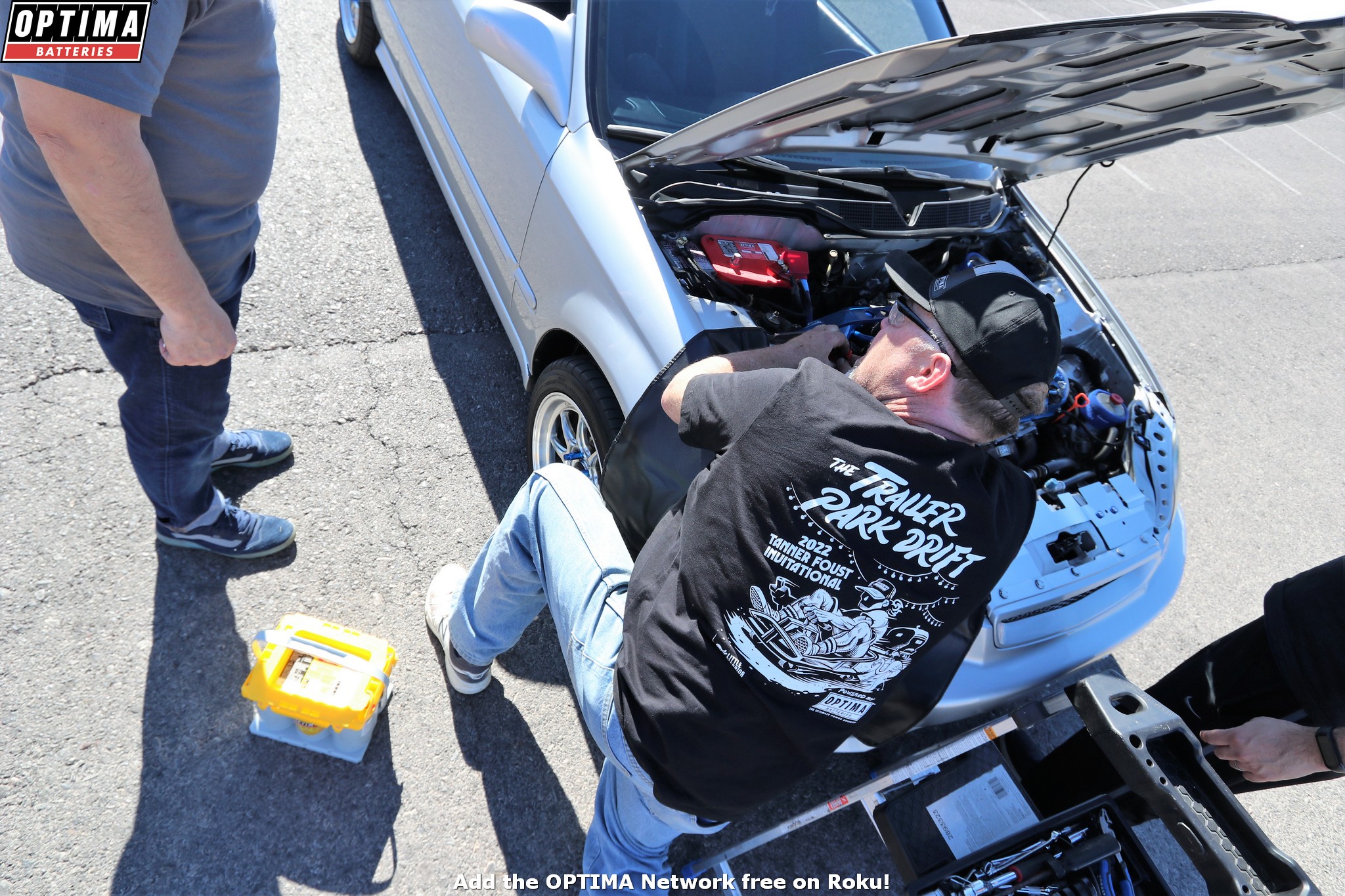Why is my Car Battery Draining So Fast?

- Sponsor
- OPTIMA Batteries
- Location
- Paradise, NV


We probably have more than a million photos in our archives at this point, but when it comes to selecting a photo for a topic about why car battery is draining so fast, it's a tough choice to make. We don't want to suggest that the vehicles we sponsor are having an issue with draining a battery quickly or that OPTIMA batteries themselves drain quickly, but it's hard to find a photo that doesn't include one, the other or both.
So we'll start with a disclaimer that we have no knowledge that the vehicle pictured above has any issue with the battery draining quickly, but the reality is, many vehicles do have this issue. That is especially true at the SEMA Show in Las Vegas, where we were upgrading the battery on this vehicle to an OPTIMA YELLOWTOP. Many of these SEMA Show vehicles have been significantly-modified from an electrical standpoint, with huge stereos, auxiliary lighting, car alarms and other accessories, all of which can place tremendous demands on both the battery and the vehicle's charging system.
If your battery is draining quickly because there is an issue with the battery, there is an easy way to confirm that is the case- fully-charge your battery with a battery charger to at least 12.6 volts and completely disconnect it from your vehicle for 12-24 hours. After letting it sit for that period of time, the battery voltage should still measure close to 12.6 volts. If your battery holds voltage when disconnected from your vehicle, but drains quickly when connected to your vehicle, then you definitely have an electrical issue, but the battery is not the problem. If the battery drains quickly, whether it is connected to your vehicle or not, then you know the battery needs to be replaced.
What you do from there depends on the severity of the issue. If you can't drive your car to work, because the battery is discharged by the time you need to come home, you definitely need to identify what is going on in the vehicle, that is discharging the battery. Some DIYers will disconnect the battery and then bridge it with a multimeter, to measure the parasitic draw (we recommend it to not really exceed about 50ma). If the draw is significant, they will then start pulling fuses, until the draw decreases significantly. From there, you can identify by the fuse that was pulled, which part of the vehicle's electrical system was causing the issue.
If you aren't that handy around cars, then you should take your vehicle to a qualified service technician for a proper diagnosis and repair. If the battery isn't getting drained quite that quickly, you might be able to just plug it in to a quality battery maintenance device on a regular basis. Most newer vehicles place incredibly high electrical demands on their batteries, compared to vehicles from just a generation ago. That's why we recommend giving your battery a maintenance charge once a month or more often, if you keep finding your battery is not measuring at least 12.6 volts.
However, keep in mind that keeping the battery fully-charged with a battery charger at home may work just fine for your regular use, but if you use your vehicle in a different way, like leaving it parked at the airport for a few weeks while you're on vacation, then you need to plan accordingly. In that scenario, you should either take a different vehicle to the airport or install a kill switch or otherwise disconnect the battery while it sits at the airport.
If you'd like to learn even more about recovering a battery that has been deeply-discharged, click here.
